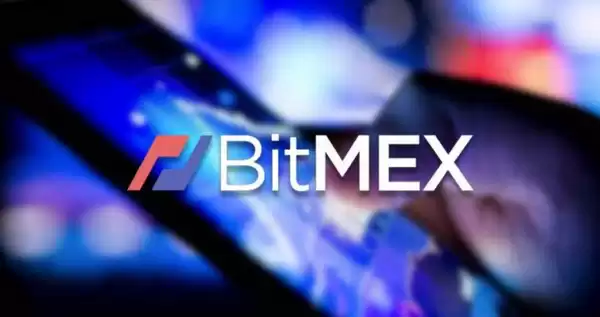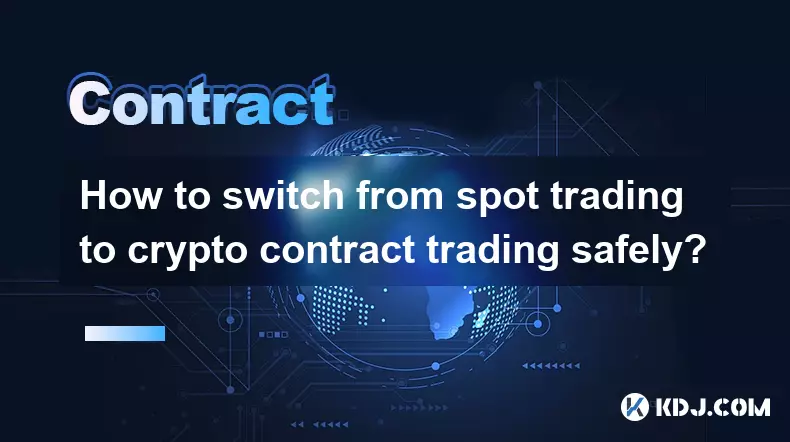-
 bitcoin
bitcoin $87959.907984 USD
1.34% -
 ethereum
ethereum $2920.497338 USD
3.04% -
 tether
tether $0.999775 USD
0.00% -
 xrp
xrp $2.237324 USD
8.12% -
 bnb
bnb $860.243768 USD
0.90% -
 solana
solana $138.089498 USD
5.43% -
 usd-coin
usd-coin $0.999807 USD
0.01% -
 tron
tron $0.272801 USD
-1.53% -
 dogecoin
dogecoin $0.150904 USD
2.96% -
 cardano
cardano $0.421635 USD
1.97% -
 hyperliquid
hyperliquid $32.152445 USD
2.23% -
 bitcoin-cash
bitcoin-cash $533.301069 USD
-1.94% -
 chainlink
chainlink $12.953417 USD
2.68% -
 unus-sed-leo
unus-sed-leo $9.535951 USD
0.73% -
 zcash
zcash $521.483386 USD
-2.87%
How to operate BitMEX contract
To operate a BitMEX contract, create an account, fund it, place an order specifying contract, order type, and quantity, monitor the order, and manage your risk through margin and stop orders.
Nov 10, 2024 at 08:04 pm

How to operate BitMEX contract
BitMEX is a cryptocurrency exchange that offers perpetual futures contracts for trading. Perpetual futures contracts are similar to traditional futures contracts, but they do not have an expiration date. This means that you can hold a perpetual futures contract indefinitely, or until you decide to close it.
To operate a BitMEX contract, you will need to:
- Create a BitMEX account. You can create a BitMEX account by visiting the BitMEX website and clicking on the "Sign Up" button.
- Fund your BitMEX account. You can fund your BitMEX account by depositing Bitcoin or another cryptocurrency into your account.
- Place an order. To place an order, you will need to select the contract that you want to trade, the order type, and the order quantity.
- Monitor your order. Once you have placed an order, you can monitor its status by clicking on the "Orders" tab in the BitMEX web interface.
Order types
There are three main types of orders that you can place on BitMEX:
- Market orders are executed immediately at the current market price.
- Limit orders are executed only when the market price reaches a certain level.
- Stop orders are executed only when the market price reaches a certain level, and then they become market orders.
Order quantity
The order quantity is the number of contracts that you want to buy or sell.
Margin
When you trade perpetual futures contracts on BitMEX, you will need to use margin. Margin is a form of leverage that allows you to trade with more money than you have in your account.
The amount of margin that you need to use will depend on the contract that you are trading and the order type that you have placed.
Funding
Perpetual futures contracts are funded on a daily basis. This means that you will need to pay or receive funding on a daily basis, depending on the position that you are holding.
The funding rate is determined by the difference between the perpetual futures contract price and the spot price of the underlying asset.
Liquidation
If you lose too much money on a perpetual futures contract, you will be liquidated. Liquidation is the process of selling your contract at a loss to cover your margin debt.
The liquidation price is determined by the margin level of your account. The margin level is the ratio of your account equity to your margin debt.
Step-by-step guide to operating a BitMEX contract
- Create a BitMEX account. You can create a BitMEX account by visiting the BitMEX website and clicking on the "Sign Up" button.
- Fund your BitMEX account. You can fund your BitMEX account by depositing Bitcoin or another cryptocurrency into your account.
- Choose the contract that you want to trade. BitMEX offers perpetual futures contracts for a variety of cryptocurrencies, including Bitcoin, Ethereum, and Litecoin.
- Place an order. To place an order, you will need to select the contract that you want to trade, the order type, and the order quantity.
- Monitor your order. Once you have placed an order, you can monitor its status by clicking on the "Orders" tab in the BitMEX web interface.
- Manage your risk. When you trade perpetual futures contracts, it is important to manage your risk. This means that you should only trade with money that you can afford to lose, and you should use stop orders to limit your losses.
- Withdraw your profits. Once you have made a profit on a perpetual futures contract, you can withdraw your profits by clicking on the "Withdraw" tab in the BitMEX web interface.
Disclaimer:info@kdj.com
The information provided is not trading advice. kdj.com does not assume any responsibility for any investments made based on the information provided in this article. Cryptocurrencies are highly volatile and it is highly recommended that you invest with caution after thorough research!
If you believe that the content used on this website infringes your copyright, please contact us immediately (info@kdj.com) and we will delete it promptly.
- Bitcoin Faces Identity Crisis as Speculators Flock to Prediction Markets and Ultra-Short Options
- 2026-02-02 00:30:06
- MGK and Jelly Roll Honor Ozzy Osbourne at Pre-Grammy Gala, Sparking Fan Frenzy
- 2026-02-02 00:50:02
- Super Bowl Coin Flip: Unpacking the Prediction Power of Heads or Tails
- 2026-02-02 01:30:01
- Litecoin Price Cracks 9-Year Floor Amidst Market Breakdown: What's Next for the OG Crypto?
- 2026-02-02 01:20:02
- Crypto News, Cryptocurrency Markets, Latest Updates: A Topsy-Turvy Start to 2026
- 2026-02-02 01:15:01
- New York Minute: LivLive Presale Ignites, While Solana Navigates Choppy Waters
- 2026-02-02 01:15:01
Related knowledge

How to close a crypto contract position manually or automatically?
Feb 01,2026 at 11:19pm
Manual Position Closure Process1. Log into the trading platform where the contract is active and navigate to the 'Positions' or 'Open Orders' tab. 2. ...

How to understand the impact of Bitcoin ETFs on crypto contracts?
Feb 01,2026 at 04:19pm
Bitcoin ETFs and Market Liquidity1. Bitcoin ETFs introduce institutional capital directly into the spot market, increasing order book depth and reduci...

How to trade DeFi contracts during the current liquidity surge?
Feb 01,2026 at 07:00am
Understanding Liquidity Dynamics in DeFi Protocols1. Liquidity surges in DeFi are often triggered by coordinated capital inflows from yield farming in...

How to trade micro-cap crypto contracts with high growth potential?
Feb 01,2026 at 02:20pm
Understanding Micro-Cap Crypto Contracts1. Micro-cap crypto contracts refer to derivative instruments tied to tokens with market capitalizations under...

How to optimize your workspace for professional crypto contract trading?
Feb 01,2026 at 08:20pm
Hardware Infrastructure Requirements1. High-frequency crypto contract trading demands ultra-low latency execution. A dedicated workstation with a mini...

How to switch from spot trading to crypto contract trading safely?
Feb 01,2026 at 03:59pm
Understanding the Core Differences Between Spot and Contract Trading1. Spot trading involves the immediate exchange of cryptocurrencies for fiat or ot...

How to close a crypto contract position manually or automatically?
Feb 01,2026 at 11:19pm
Manual Position Closure Process1. Log into the trading platform where the contract is active and navigate to the 'Positions' or 'Open Orders' tab. 2. ...

How to understand the impact of Bitcoin ETFs on crypto contracts?
Feb 01,2026 at 04:19pm
Bitcoin ETFs and Market Liquidity1. Bitcoin ETFs introduce institutional capital directly into the spot market, increasing order book depth and reduci...

How to trade DeFi contracts during the current liquidity surge?
Feb 01,2026 at 07:00am
Understanding Liquidity Dynamics in DeFi Protocols1. Liquidity surges in DeFi are often triggered by coordinated capital inflows from yield farming in...

How to trade micro-cap crypto contracts with high growth potential?
Feb 01,2026 at 02:20pm
Understanding Micro-Cap Crypto Contracts1. Micro-cap crypto contracts refer to derivative instruments tied to tokens with market capitalizations under...

How to optimize your workspace for professional crypto contract trading?
Feb 01,2026 at 08:20pm
Hardware Infrastructure Requirements1. High-frequency crypto contract trading demands ultra-low latency execution. A dedicated workstation with a mini...

How to switch from spot trading to crypto contract trading safely?
Feb 01,2026 at 03:59pm
Understanding the Core Differences Between Spot and Contract Trading1. Spot trading involves the immediate exchange of cryptocurrencies for fiat or ot...
See all articles










































































